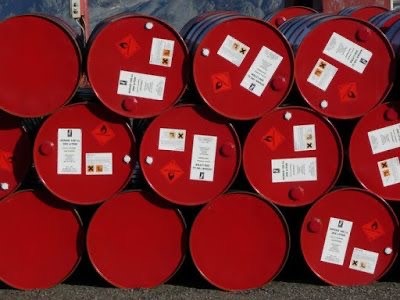Nigeria stands tall as the “Giant of Africa,” graced with the munificent bestowal of abundant natural resources. Foremost among these treasures is the liquid gold that courses beneath its soil oil. Since the historic revelation of substantial oil reserves in the Niger Delta region during the 1950s, the trajectory of Nigeria’s economic landscape has been indelibly marked by this alluring black bounty. Yet, like an age-old riddle, a question endures, persisting through the decades: Has Nigeria’s oil wealth bestowed upon the nation the mantle of blessing or, rather, has it cast a shadow of curse and conundrum?
The vast oil reserves buried beneath Nigeria’s soil look as a grandiose blessing on the surface of its landscape. Nigeria has been portrayed as a strong economic force on the African scene thanks to the massive amounts of money streaming in from oil exports. Like a modern-day Midas, the oil business has helped to create jobs, build essential infrastructure, and finance a wide range of ambitious development projects. However, the truth is hidden beneath this bucolic façade and is weaved into a tapestry of complexity.

A problem known as the “resource curse” that affects all countries with abundant natural resources sits at the heart of Nigeria’s oil-related dilemma. This mysterious phenomena unfolds a contradictory story in which resource-rich nations frequently find themselves mired in a mire of economic stagnation, widespread corruption, and shaky political instability. Nigeria serves as a sobering illustration of a country caught in this confusing web. Its excessive reliance on income from the oil industry has hampered the organic growth of other economic sectors, making the country extremely vulnerable to the erratic changes in oil prices. Nigeria’s economy grows along with rising oil prices, but when the oil market declines sharply, it is thrust into severe hardship.
Nigeria’s oil industry is under the gloomy shadow of corruption, which is raging like a never-ending storm. The murky veil that hides the intricate details of oil deals and the lack of openness in revenue management have combined to create an environment that is conducive to corruption. Additionally to eroding the potential benefits of oil revenue, this blight also throws a long, ominous shadow of poverty and inequality across the nation. The Niger Delta, the very centre of oil exploitation, is the place where this division is most obvious. This region is nevertheless mired in a web of underdevelopment and environmental aridity despite its abundance.
Environmental degradation represents a further manifestation of the oil curse. The populations living close to oil installations pay a heavy price in devastation due to oil spills, petrol flares that never go out, and a variety of ecological risks. Oil companies are at odds with both the government and local populations as a result of the devastating effects of these environmental ills, which have sparked their own conflicts. As instability is sown among the black gold, this turbulent dynamic further unbalances the country.

Nigeria’s oil wealth, paradoxically, has cast a baleful shadow upon the arena of governance and politics. The irresistible allure of oil riches has engendered a breeding ground for political corruption and perennial instability. In the pursuit of access to the oil treasury, politicians are often consumed by the relentless quest to seize and hold onto power, eclipsing their obligation to tend to the genuine needs of the populace. The result is a disheartening cycle of mismanagement and underdevelopment, where the wheels of progress grind to a halt.
Nigeria is also caught in a perilous dance due to the world’s ever-changing oil prices. The country is incredibly dependent on oil revenue, making it a prisoner to the erratic global oil market. This weakness was exposed in 2014 when the price of oil crashed, a catastrophe that rocked Nigeria’s economic foundations and pushed the country into deep recession. A ship thrown about on stormy seas, the oil-dependent economy is constantly buffeted by outside factors, exposing its vulnerable underbelly to the storms of financial instability.
There are a number of crucial steps that must be performed in order to turn Nigeria’s oil wealth from a curse to a blessing. The need for a comprehensive, open oil sector reform is the most important of these. This necessitates a thorough makeover that includes the responsible management of oil earnings, the addressing of environmental concerns, and a steadfast stance against the incursion of corruption.
Another crucial step in this transformational process is diversity. To free itself from the strangling grip of its reliance on oil, Nigeria must plant the seeds of investment in industries other than oil, such as manufacturing, agriculture, and technology. The cultivation of a more robust and harmonious economic ecology, one that is less vulnerable to the erratic swings of the world oil market, is promised by this diversification.

Yet, the metamorphosis does not stop at economic diversification; it extends to the very core of political and governance realms. The fortification of institutions, the unwavering adherence to the rule of law, and the elevation of accountability to a paramount pedestal—these are the pillars upon which the edifice of corruption’s eradication and the edification of good governance stand. In this multifaceted tapestry of transformation, these reforms form the scaffolding upon which the nation’s fortunes can be redirected towards a brighter horizon.
Before our eyes, the mystery of Nigeria’s oil wealth is revealed. Despite being initially viewed as a blessing, it has sadly turned out to be a complex national plague. Nigeria’s path to development has been clouded by the chains of the resource curse, the ubiquitous spectre of corruption, the scourge of environmental deterioration, and the discordant strains of political instability.
Yet, amidst this labyrinth of adversity, a glimmer of hope remains. With a steadfast resolve and the compass of comprehensive reforms firmly in hand, Nigeria holds within its grasp the potential to transmute the albatross of oil wealth into a true blessing, one that bestows its benevolence upon all its citizens. The journey ahead may be arduous, fraught with challenges, yet the transformation is within reach, an essential odyssey for Nigeria’s future prosperity and the steadfast anchoring of its stability. The mantle of blessing beckons, waiting to embrace a nation poised for renewal and rejuvenation.
Sources
- https://amp.theguardian.com/global-development/2021/nov/09/a-wealth-of-sorrow-why-nigerias-abundant-oil-reserves-are-really-a-curse
- https://amp.theguardian.com/global-development/2021/nov/09/a-wealth-of-sorrow-why-nigerias-abundant-oil-reserves-are-really-a-curse
- https://www.scirp.org/journal/paperinformation.aspx?paperid=83885#:~:text=Evidence%20shows%20that%20in%20Nigeria,the%20benefit%20of%20its%20people.
- https://dc.cbn.gov.ng/bullion/vol40/iss1/3/




